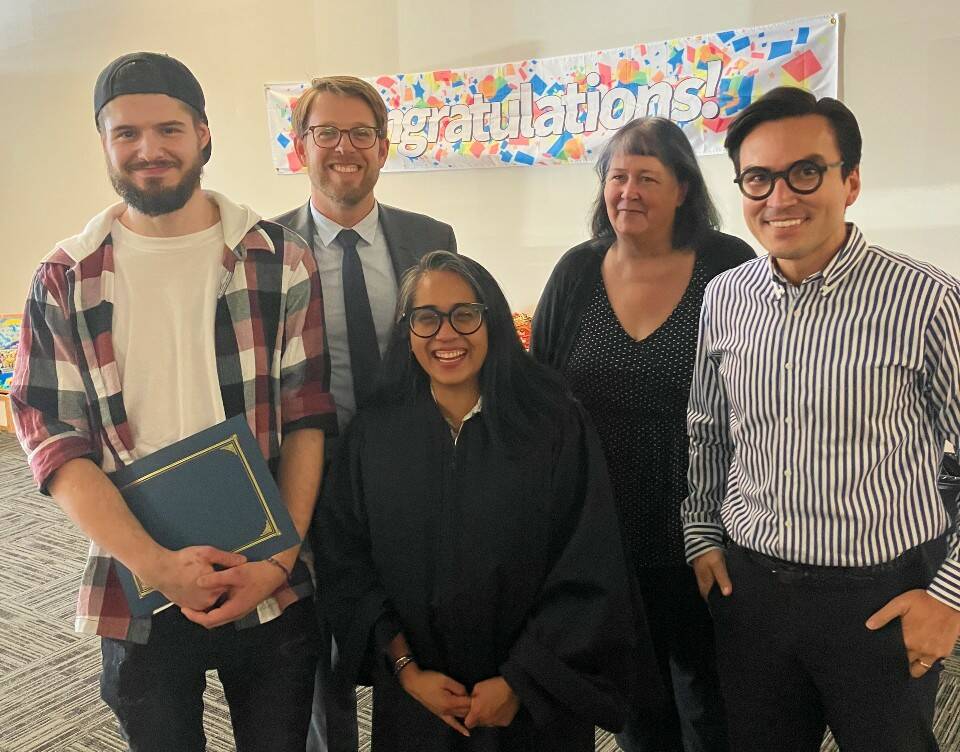As Auburn struggles with quality of life crimes such as shoplifting and trespassing, Judge Leah Taguba at Auburn’s Community Court is working to address the underlying causes behind such crimes.
Instead of sending people to jail or putting them on probation for minor crimes, every Thursday afternoon, Judge Taguba works with an array of service providers to get folks the help they need to live a crime-free life.
The most common underlying issues are things like poverty, homelessness and drug addiction. But sometimes deeper issues such as trauma from childhood abuse or domestic violence are at play as well, Judge Taguba said.
At any given time, around two-dozen defendants, or participants, are working their way through the Community Court.
Each participant starts the program with a needs assessment with Court Coordinator Jennifer Turner, who connects them with services for housing, transportation or addiction treatment. After the needs assessment, the court works with the participant to create an agreement with requirements including addressing their needs as well as community restoration to hold them accountable for their crime, Taguba said.
“Once their needs are determined, every week, we as a group, the prosecutor, the judge, the defense attorneys, the social workers, and even to some degree their treatment providers, will talk about what they’re doing, how they’re doing, if this treatment in place is working for them,” Judge Taguba said.
When a participant completes all of the agreed upon requirements, their case is dismissed, Judge Taguba said.
Judge Taguba, who worked in the King County Prosecutor’s Office for 15 years prior to becoming a judge, said this program is more effective at reducing recidivism in these cases compared to traditional courts.
“You can’t arrest your way through a problem, particularly a systemic problem that is born out of things like poverty or mental illness or drugs,” Judge Taguba said. “Like it’s not a solution. And so how are you going to solve it? Well, it’s through mechanisms like this, where we can ask people to voluntarily engage in these treatments, but also have a little bit of an incentive, because you get something out of it in the end.”
If a participant doesn’t follow through with their agreement, their case can be revoked and sent back to the traditional courts. However, Judge Taguba said that’s been a rare occurrence, and since she started working at the Community Court in March 2022, only one participant has been revoked.
One factor that helps the Auburn Community Court is its location directly next to the Resource Center. The Resource Center, which is open to everyone (not just Community Court participants), is a hub for connecting people with the resources they need. If a participant hits a speed bump in their progress, the court can send them next door to get things sorted out, Judge Taguba said.
“It’s that type of intervention, right in the moment, that makes a world of difference. And I think that’s the reason why you see less recidivism in these types of courts, because you’ve got services at the ready for them and accessible to them,” Judge Taguba said.
In the future, Judge Taguba said she hopes King County will expand the Community Court program so it can reach more people, especially in Auburn. With the limited resources devoted to the court and Resource Center, the current demand exceeds the supply.
“I would love to see Auburn expand. What you’ll notice, if you look at the resource centers and all of the different locations that we have, Auburn basically outpaces everyone three to one,” Judge Taguba said. “We have a huge high needs population.”
While the upfront cost for Community Court may be higher than traditional courts, the long-term benefits of getting people off of drugs, into housing and creating a sense of stability, pays for itself, Judge Taguba said.
“I promise you that if you’re doing these alternatives, you’re going to see that reduction in crime, that reduction in harm, and ultimately a reduction in jail population, which I think is a win-win for everybody,” Judge Taguba said
In addition to expanding the court, Judge Taguba said some systems outside of the courts need to change in order for people to get the help they need. One of the court’s current participants is a woman who is suffering medical issues due to her drug addiction and is stuck in limbo due to conflicting requirements.
Judge Taguba said the detox facility requires her to have her medical issues treated first. However, when she tries to get treatment, the medical facilities turn her away and say she has to detox first. An untold number of people struggling with addiction likely don’t receive the medical care they need to get sober due to conflicting systems, Judge Taguba said.



